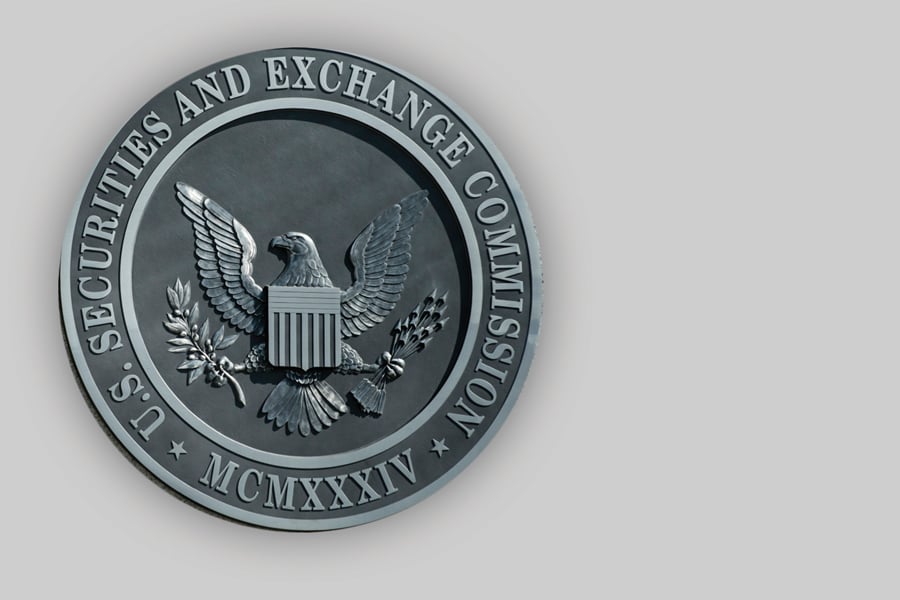

Legislation that would fund the Securities and Exchange Commission, while preventing it from implementing a proposal to expand access to private markets, passed the House on Friday but is not likely to get through the Senate.
The legislative language will stoke the debate over policy toward unregistered securities, or private placements.
The Democratic-majority House approved mostly along party lines, 217-197, a bill that included appropriations for the Departments of Defense, Health and Human Services, Transportation and several other agencies in addition to the SEC, whose budget would increase by $105 million for fiscal 2021.
A provision within the SEC section would prohibit the SEC from allocating any funds to implement the private market measure until it approves a 2013 proposal that would require the agency to collect more data about unregistered securities and potential investor harm from their sales.
The language in the legislation reflects Democratic opposition to the proposal from members such as Rep. Maxine Waters, D-Calif., and chairwoman of the House Financial Services Committee.
“Private markets lack critical investor protection safeguards, are highly illiquid, and lack the transparency investors need to make informed investment decisions,” Waters wrote to SEC Chairman Jay Clayton in a June 25 comment letter.
The Institute for Portfolio Alternatives supports the SEC’s proposal, which would update the rules for unregistered securities.
“We opposed the language included in the House appropriations bill that hamstrings the SEC ability to exercise its expertise and insight in striking the critical balance between investor protection and access to capital markets by jobs-creating firms and entrepreneurs,” Anya Coverman, IPA senior vice president and general counsel, said a statement.
Congressional Republicans also back the SEC’s proposal.
“Expanding access to private capital through this rulemaking will help the U.S. economy recover from the COVID-19 crisis,” Sen. Patrick Toomey, R-Penn., and a member of the Senate Banking Committee, wrote in a July 1 comment letter.
That kind of support in the Republican-majority Senate makes it unlikely the House provision would be incorporated in a Senate SEC funding bill. In fact, the House and Senate are not likely to reach a funding agreement before the end of the fiscal year in late September, necessitating a continuing resolution through the election, Coverman said.
Regardless of what happens to the appropriations provision, the debate over cracking open private markets will continue. Currently, purchasing unregistered securities is limited to accredited investors who meet wealth and income thresholds.
Allowing more ordinary investors to participate in private offerings will require striking a balance between giving them access and ensuring they’re able to understand what they’re buying, said William Kelly, chief executive of the Chartered Alternative Investment Management Association.
“It’s more a question of ‘how’ rather than ‘if’ we do this,” Kelly said. “We’ve got to be talking about democratization of products along with investor education. [Disclosure] is not good enough. We have to find a way of bridging that knowledge gap long before we allow access.”
Expanding private markets is a priority for Clayton and other SEC leaders.
In a recent speech, Dalia Blass, director of the SEC’s Division of Investment Management, said target date funds and closed-end funds could “provide convenient, professionally managed means for Main Street investors to invest in” private markets.
Doing so could help them boost retirement savings in defined contribution plans.
“Private investments have the potential to provide stronger returns and diversification for investors, but come with both performance and liquidity risks,” Blass said. “Defined benefit plans utilize the potentially advantageous returns while seeking to manage those risks. Defined contribution plans have not, historically, provided access to private investments. As a result, Main Street investors are increasingly on the outside looking in.”

Rajesh Markan earlier this year pleaded guilty to one count of criminal fraud related to his sale of fake investments to 10 clients totaling $2.9 million.

From building trust to steering through emotions and responding to client challenges, new advisors need human skills to shape the future of the advice industry.

"The outcome is correct, but it's disappointing that FINRA had ample opportunity to investigate the merits of clients' allegations in these claims, including the testimony in the three investor arbitrations with hearings," Jeff Erez, a plaintiff's attorney representing a large portion of the Stifel clients, said.

Chair also praised the passage of stablecoin legislation this week.

Maridea Wealth Management's deal in Chicago, Illinois is its first after securing a strategic investment in April.
Orion's Tom Wilson on delivering coordinated, high-touch service in a world where returns alone no longer set you apart.
Barely a decade old, registered index-linked annuities have quickly surged in popularity, thanks to their unique blend of protection and growth potential—an appealing option for investors looking to chart a steadier course through today's choppy market waters, says Myles Lambert, Brighthouse Financial.
